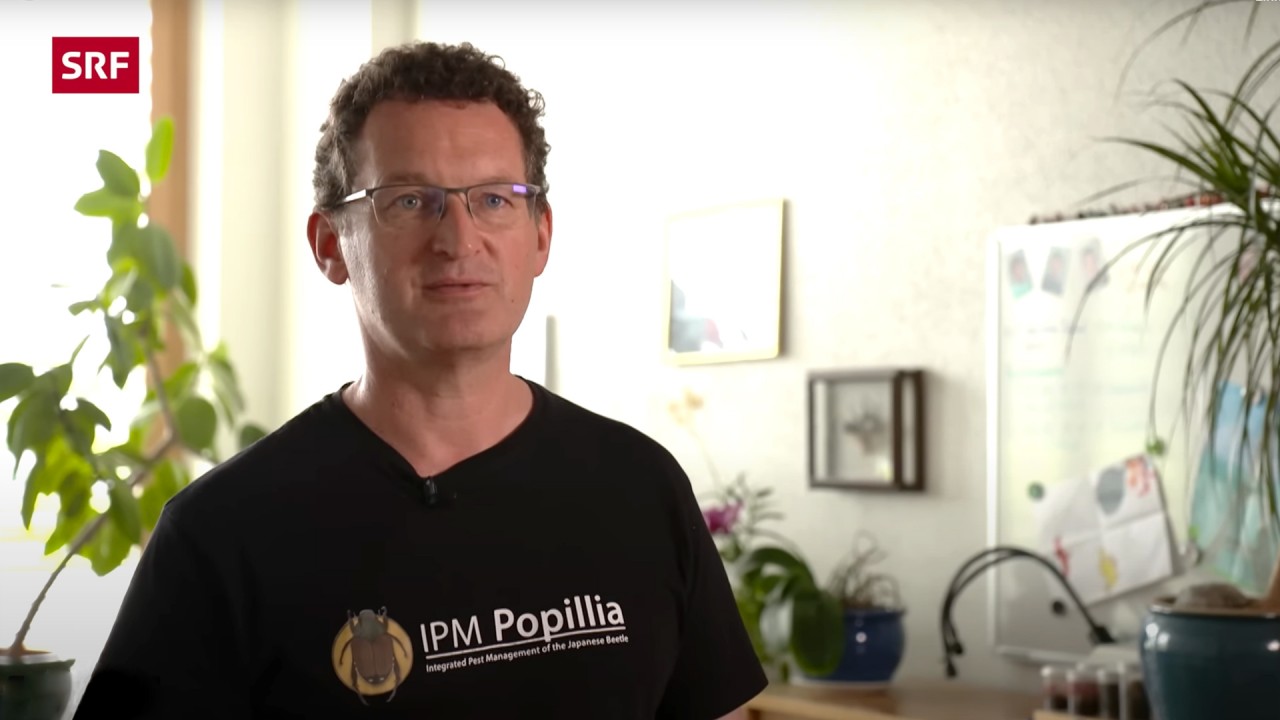Popillia japonica documentary on SRF Wissen
After the Azores and Italy, the Popillia japonica beetle is already present in Switzerland. SRF Wissen has recently published a documentary about invasive species in Europe, that vividly shows how important research and methods are when it comes to tackle the problem.
Agroscope, coordinator of the Horizon 2020 project IPM Popillia, is represented with a contribution in the last part of the documentary in the Einstein series format. Giselher Grabenweger, entomologist at Agroscope, provides insight into research on Popillia japonica and special fungi that could stop help to the invasive beetle in its adult stage. Already this summer, attempts will be made to apply the results that have been successful in the laboratory to field practice.
If you would like to become part of our research and share your observations about the beetle as a Citizen Scientist, please find the download information for the IPM Popillia Citizen Science App here:
Android (Google Play): https://play.google.com/store/apps/details?id=com.spotteron.ipm
iPhone (Apple App Store): https://apps.apple.com/in/app/ipm-popillia-pest-management/id1609972479
By accepting you will be accessing a service provided by a third-party external to https://www.popillia.eu/




